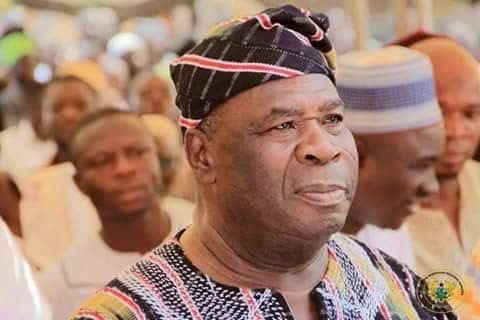Early Life and Background
Bugri Naabu’s early life and background present a fascinating tapestry of influences that shaped his later endeavors in public service and politics. Born into a family known for its traditional leadership roles, this family background provided Naabu with insights into the socio-political dynamics of his community. The values instilled by his upbringing likely played a significant role in his approach to governance and public affairs. His education history further enriched his perspective, as he pursued academic opportunities that equipped him with essential skills. Naabu’s educational experiences, both formal and informal, allowed him to engage critically with the socio-economic challenges facing his community. This blend of familial influence and educational background suggests an extensive foundation that prepared him for future challenges in his political journey. Understanding these formative years is essential for grasping the motivations that propelled Naabu into the public sphere.Political Career Beginnings
The foundation laid during his early life naturally influenced the trajectory of Naabu’s political career. His formative years were marked by strong cultural values and traditional leadership, which instilled in him a sense of responsibility towards his community. These early influences shaped his political aspirations and sparked an interest in governance and public service. Naabu’s initial foray into politics was characterized by grassroots engagement, where he sought to address local issues and advocate for his constituents. This hands-on approach allowed him to build a rapport with the people, essential for any emerging politician. His early commitment to community development and social justice laid the groundwork for future endeavors. Furthermore, Naabu’s ability to navigate the complexities of local politics demonstrated his emerging leadership skills, suggesting that his early experiences were pivotal in defining his political identity and ambitions within the broader political landscape of Ghana.Rise to Prominence in Northern Ghana
Emerging as a significant figure in Northern Ghana, Naabu capitalized on his grassroots connections to elevate his profile within the political arena. His rise was marked by the formation of strategic political alliances, which not only bolstered his influence but also solidified his standing among various community stakeholders. By leveraging existing networks and fostering new relationships, he effectively navigated the complex socio-political landscape of the region. Naabu’s ability to connect with local populations enhanced his social influence, allowing him to resonate with constituents’ needs and aspirations. This engagement was pivotal in garnering support, as he positioned himself as a representative of marginalized voices. Additionally, his interactions with traditional leaders further amplified his credibility, creating a multifaceted approach to leadership. Naabu’s ascent illustrates the interplay between grassroots support, political maneuvering, and social influence, which are critical elements in understanding his prominence in Northern Ghana’s political framework.Contributions to Governance and Development
Building on his grassroots connections and political alliances, Naabu’s contributions to governance and development in Northern Ghana have been remarkable. His governance strategies often emphasize community engagement, aiming to empower local populations through participatory decision-making. By fostering collaboration among various stakeholders, Naabu has sought to enhance transparency and accountability within governmental processes. Moreover, his development initiatives have targeted critical areas such as education, healthcare, and infrastructure. Naabu has championed programs designed to improve access to quality education and healthcare services, recognizing their foundational role in community upliftment. His advocacy for infrastructural development has aimed to connect rural areas with urban centers, fostering economic growth. However, questions remain regarding the sustainability of these initiatives and their long-term impact on governance. An analysis of Naabu’s contributions reveals both achievements and challenges, prompting a broader discussion on effective governance in the region.Role as a Traditional Leader
Maneuvering the intricate dynamics of traditional leadership, Bugri Naabu has played a pivotal role in shaping the cultural and social landscape of Northern Ghana. His position as a traditional leader has afforded him significant traditional authority, allowing him to influence community norms and practices. Naabu’s commitment to cultural preservation is evident in his efforts to uphold traditional customs and values amidst rapid modernization.Key Controversies and Challenges
Despite Bugri Naabu‘s significant contributions to the preservation of cultural traditions in Northern Ghana, his leadership has not been without its controversies and challenges. Throughout his political career, he has been entangled in several political scandals that have raised questions about his governance and integrity. Disputes related to leadership within local traditional councils have surfaced, leading to tensions among rival factions and undermining his authority. Critics argue that these disputes have not only hampered effective governance but also diverted attention from pressing community issues. Additionally, his political affiliations have occasionally drawn scrutiny, prompting debates about his commitment to serving the interests of his constituents versus personal ambitions. These challenges illuminate the complexities of maneuvering leadership in a culturally rich but politically volatile environment, compelling observers to reflect on the implications of such controversies on his legacy and the broader landscape of Northern Ghana’s traditional institutions.Public Perception and Media Coverage
Public perception of Bugri Naabu is a complex interplay of admiration and skepticism, shaped considerably by media coverage. His journey as a politician and traditional leader has been marked by both significant achievements and notable controversies, which have drawn a varied response from the public. Media influence plays a pivotal role in shaping public opinion, often amplifying both his successes and failures. Coverage tends to oscillate between highlighting his contributions to regional politics and scrutinizing his contentious relationships with rival factions. This duality creates a polarized image; while some view him as a committed leader advocating for his community, others perceive him as embroiled in political scheming. The media’s portrayal can sway public sentiment, reflecting broader societal attitudes toward leadership and accountability. Therefore, the narrative surrounding Bugri Naabu remains fluid, as it is continuously molded by the evolving landscape of political discourse and media representation.Legacy and Impact on Ghanaian Society
The legacy of Bugri Naabu within Ghanaian society is marked by both his political influence and his role as a traditional leader. His contributions have sparked discussions about community engagement and the importance of cultural preservation. As a traditional leader, Naabu has played a pivotal role in upholding cultural practices and values, fostering a sense of identity among the youth. His political endeavors, characterized by their focus on grassroots development, have often aimed to empower local communities, encouraging civic participation in governance. However, Naabu’s tenure has not been without controversy, which raises questions about the sustainability of his impact. Critics argue that while he has promoted dialogue and engagement, some of his actions may have undermined trust within the communities he sought to uplift. Consequently, the complexity of his legacy invites further examination of how political figures can effectively balance tradition with progress in Ghanaian society.Frequently Asked Questions
What Are Bugri Naabu’s Personal Beliefs and Values?
The inquiry into personal beliefs and values reveals a complex personal philosophy, rooted in moral principles that emphasize community, respect, and leadership. Analyzing these facets may provide insights into his motivations and decision-making processes.How Does Bugri Naabu Influence Youth in Politics?
The influence on youth in politics is evident through initiatives promoting youth empowerment and political mentorship. By fostering engagement and providing guidance, he cultivates a new generation of politically active individuals, shaping future leadership dynamics.What Are His Views on Traditional Leadership Roles?
The exploration of traditional governance reveals that he advocates for strengthened leadership dynamics, emphasizing the importance of cultural heritage while adapting to contemporary political structures, thereby fostering unity and respect among youth and traditional authorities.What Philanthropic Activities Is Bugri Naabu Involved In?
The philanthropic activities of the individual include various community outreach programs and charitable initiatives aimed at improving local welfare. These efforts reflect a commitment to social development and the enhancement of living conditions within underserved populations.How Does Bugri Naabu Handle Criticism and Opposition?
Criticism response and opposition strategy are vital aspects of leadership. Observers note that he often addresses dissent with assertiveness, employing a combination of public statements and outreach efforts to mitigate negative perceptions and strengthen his position.Discover more from Ghana Scoop
Subscribe to get the latest posts sent to your email.





